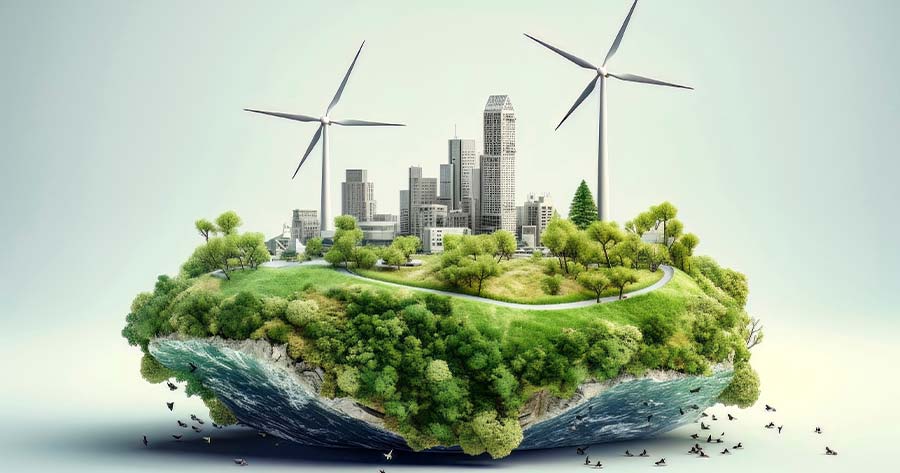Indisputably, the world is undergoing another ‘revolution’ to fight off the deteriorating planetary condition, having survived centuries of imprudent environmental abuse. As the majority of the governing bodies share this concern, how much is being done, really?
We can still observe a continuous ruination in many parts of the globe: fracking that produces methane and unnecessarily large amounts of wastewater; unregulated energy use and carbon emissions from building; incontinent deforestation of the Amazon; or even our seemingly insatiable hunger for war profit, just to name a few.
In Thailand, the environment remains the most concerned issue, rating highest of all public affairs. A study carried out since 2019 has been consistently showing Thai locals worrying about their quality of life severely affected by daily pollution, whether that be air, noise, or odor.
Survey showed Thais are concerned most about vehicular smog, unsustainable waste management, use of foam and plastic materials, use of harmful chemicals, and emission from combustibles, in that particular order.
While some believe the government is solely accountable for ‘fixing’ the issue, others vehemently argue that the citizens bear the most burden and must do their parts responsibly. This can be seen throughout the general population of every nation, let alone Thailand. Average persons don’t have the time or resources to participate in substantial changes and, therefore, view the solution of said problem belongs primarily to the government.
The problem, right now, could be the fact that most people are ‘armchair activists,’ who would go on saying many many things, accusing others and pointing fingers, with zero action taken. As the concern remains and most of us want to make contributions to save the environment, there is much less behavioral change to yield any effective outcome. In reality, it is everyone’s problem as well as everyone’s duty to breathe new life into the planet.
According to the macroeconomic study by the National Bureau of Economic Research (NBER), every one Celsius (1°C) rise in global temperature can cost the global GDP to decline by 12%, while the “social cost of carbon” is estimated at $1,056 or THB 35,217 per 1t of carbon dioxide.
Even though the environmental awareness among individuals is evidently high, so too is the level between such awareness and commitment. Individuals and organizations should be encouraged and incentivized to make progressively more sustainable decisions regularly, should we truly aim for an imperishable future.





